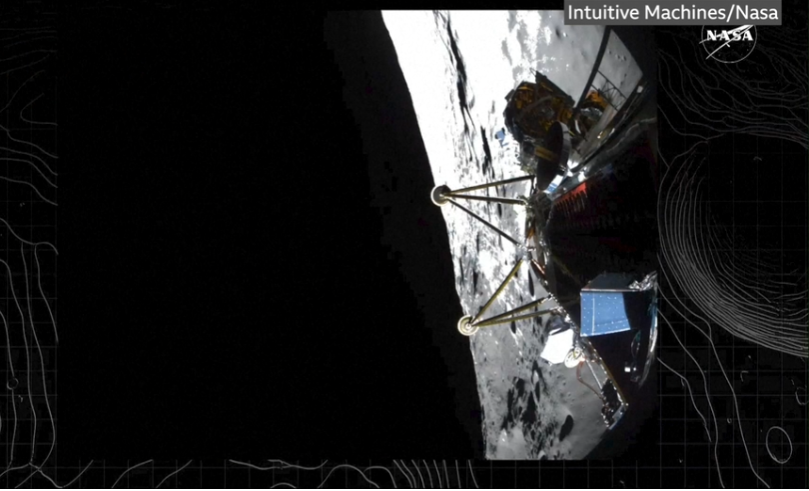(BBC News) A private spacecraft that landed lopsided on the Moon does not have enough power to complete its mission, says the company Intuitive Machines.
Athena touched down on the lunar South Pole shortly after 17:30 GMT on Thursday, but it later was revealed the craft had landed on its side.
It was supposed to spend 10 days searching for water ice, but the position of its solar panels and the cold temperatures of the rocky region mean it cannot recharge.
Intuitive Machines partnered with US space agency NASA to explore whether humans can live on the Moon.
“With the direction of the sun, the orientation of the solar panels, and extreme cold temperatures in the crater, Intuitive Machines does not expect Athena to recharge,” the company said in a statement about the mission called IM-2.
Last year Intuitive Machines’ first spacecraft also landed on its side, breaking a leg.
It is unlikely that the instruments on board can now be used, including a drill to penetrate the lunar soil, a hopping robot to explore a shadowed crater, and the first lunar antenna.
“Clearly the mission can only have achieved a fraction of its science goals,” says Dr Simeon Barber, lunar scientist at the Open University.
But the ambitious mission still achieved milestones in ongoing exploration of the Moon.
Athena made it further south than any other lander, reaching the Mons Mouton region which is a flat-topped mountain about 160 km from the South Pole.


